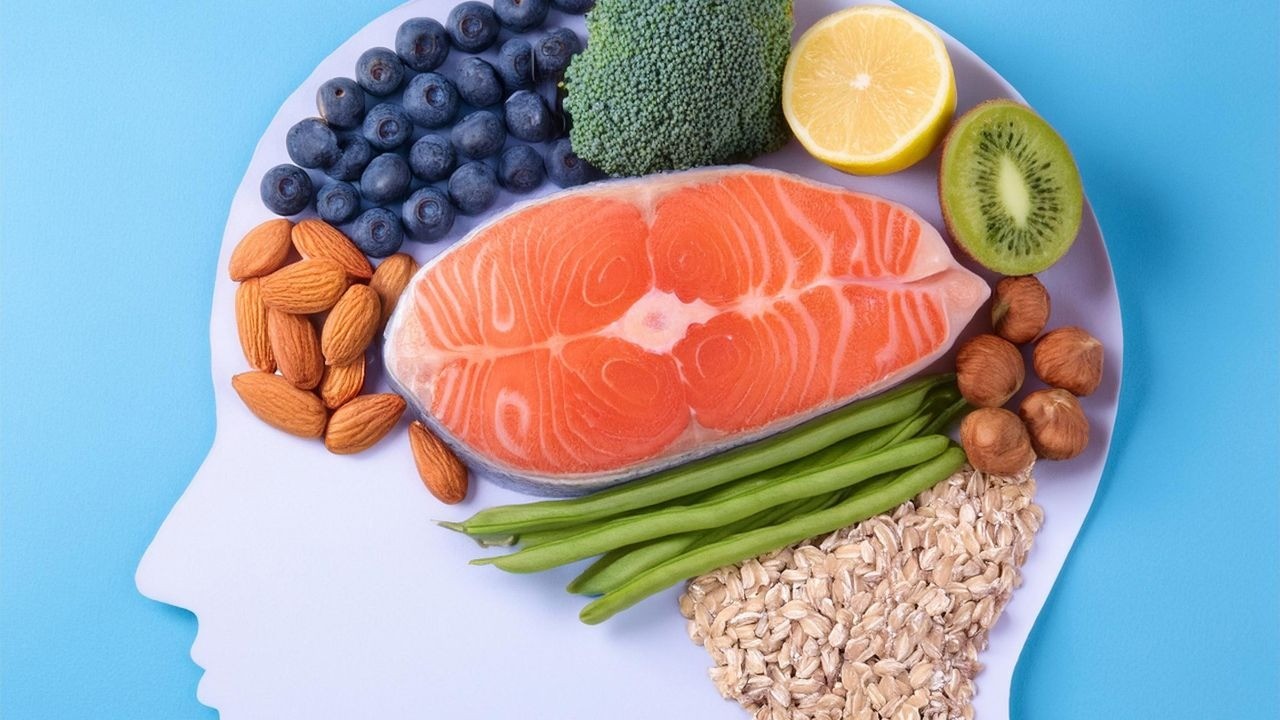
I’ll never forget a patient I worked with early in my career. Let’s call her Maria.
She came into my office, visibly exhausted, carrying years of depression on her shoulders.
She spoke about her lack of energy, the fog that clouded her mind, and the frustration of trying countless medications that helped a little but never quite enough.
As Maria described her daily routine, something stood out to me.
Her diet.
Breakfast was a quick pastry and coffee, lunch was often skipped or replaced by a sugary snack, and dinner was whatever she could grab between working late and collapsing into bed.
I gently asked if she had ever considered how her eating habits might be affecting her mood.
She looked surprised.
“Food? I thought this was about my brain, not my stomach.”
And there it was.
A common belief that what we eat has little to do with how we feel—a belief that couldn’t be further from the truth.
As a psychiatrist, I’ve seen firsthand how medication can help manage symptoms.
For many, it’s a lifeline. But medication often addresses the symptoms, not the root cause. And for some, the root cause may be sitting on their plate.
The connection between food and mental health is both fascinating and powerful. It’s not just about “eating healthy” in the traditional sense. It’s about understanding that the brain is an organ, one that depends on the right nutrients to function properly.
When it’s starved of those nutrients or overwhelmed by inflammatory foods, it struggles—and we feel the effects.
Take sugar, for example. It gives a quick rush of energy but can leave you crashing soon after.
Over time, those crashes can lead to irritability, fatigue, and even symptoms of depression.
Or consider trans fats, found in many processed foods, which have been linked to inflammation—a key player in mental health conditions like depression and anxiety.
Now, imagine replacing those foods with nutrient-dense options.
Omega-3 fatty acids from fish, which support brain health.
Antioxidant-rich vegetables that fight inflammation. Protein-packed meals that stabilize blood sugar levels and provide the building blocks for neurotransmitters like serotonin and dopamine.
This isn’t just theory. It’s backed by science.
Studies show that people who follow diets rich in whole foods—like the Mediterranean or ketogenic diet—report lower rates of depression and anxiety.
And emerging research suggests that certain diets can even enhance the effectiveness of psychiatric medications.
Maria was skeptical but curious.
I didn’t suggest an overnight transformation. Instead, we started small.
She swapped her morning pastry for a boiled egg and some avocado.
Lunch became a salad with grilled chicken and olive oil. She added more vegetables to her dinners and began to drink more water throughout the day.
Within weeks, she began to notice subtle changes. Her energy improved.
The fog in her mind started to lift. Medication that once felt like it was barely working suddenly seemed more effective.
Over time, these small changes grew into a sustainable lifestyle. Maria wasn’t just surviving; she was thriving.
Here’s what I want you to take away from this:
Food is not a magic cure-all, but it is a powerful tool. It can either support or sabotage your mental health.
And the best part? It’s something you have control over every single day.
If you’re wondering where to start, here are three steps:
- Simplify your choices. Start by adding more whole, unprocessed foods to your plate. Think fresh vegetables, lean proteins, and healthy fats.
- Focus on blood sugar stability. Avoid sugary snacks and processed carbs that can send your energy on a rollercoaster. Instead, opt for meals that combine protein, fat, and fiber.
- Listen to your body. Pay attention to how different foods make you feel. Do you feel energized or sluggish? Calm or irritable? Your body often tells you what it needs.
I’m sharing this because I believe in empowering you to take charge of your health.
Yes, medication and therapy are essential parts of the puzzle, but food is another piece that’s often overlooked. It’s not about perfection. It’s about progress.
Remember, your brain is an incredible organ that works tirelessly for you.
Fuel it well, and it will reward you with clarity, energy, and resilience.
Maria’s story is a testament to that—and yours can be too.
So, what’s the next meal you’ll use to nourish not just your body, but your mind?
You’re in charge of the answer, and I’m here to cheer you on every step of the way.
Florina
Get My Blog Posts Right in Your Inbox Every Week
Make your mental health a priority. Receive tips and strategies for living well – mentally, physically, and emotionally – every week.
Get My Free Guide: 7 Cheap, Simple Strategies for Boosting Your Brain Performance
Better focus – clearer memory – faster cognition – more mental clarity – improved intellect…
Your brain is capable of beautiful things. If you don’t think you’re getting the most out of your cranial supercomputer, you can reap the benefits of these 7 simple strategies for the low, low price of “free.”